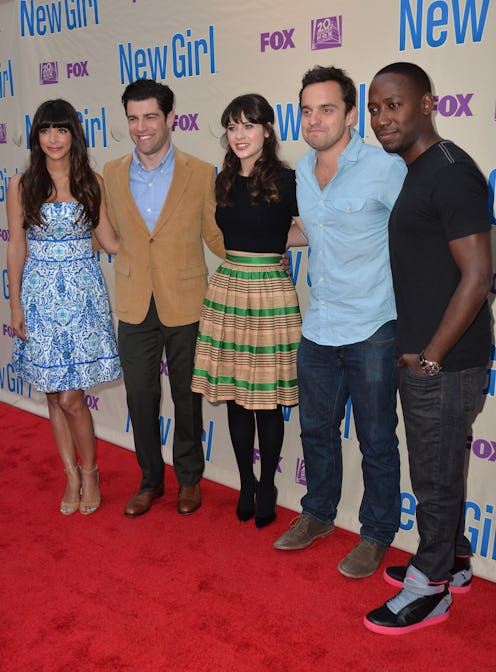Entertainment
My Life Is Not Like 'New Girl'
The other day, I was walking down the street when a passing stranger held up his hand towards me. I thought he was trying to give me a high five, so I shrugged, smiled, and then swatted for him. He was not trying to give me a high five after all.
I know I’m a little behind the game, but I recently watched the first two seasons of New Girl on Netflix and, like everybody else, I was instantly hooked. Though she has some haters, there’s not much to dislike about Jessica Day, Zooey Deschanel’s character. She is the girl with the Daria glasses and the closet full of flannel pajama sets. She is the sometimes tap-dancing, certifiable awkward girl, full of quirk, kitsch, charm, and glitter. And she would have tried to high five that guy too.
Jess is lovable because she’s “just like us.” Beneath the baby doll dresses, the cupcakes, and the impromptu singing, she struggles to feel beautiful, to feel formidable, to feel like she’s got it all together. She does not know how to flirt effectively, or how to walk in stilettos, or how to drink pink wine without getting a little fresh. I can’t do those things either — and so it comes as no surprise to me that, at first glance, I feel like I get her.
Like Jess, I share an apartment with male roommates — four of them — and, before watching New Girl, I believed my living situation to be merely reflective of a transitional life stage. I am 27, and I am single. I have left home, but I have not yet built one of my own. It’s a kind of homelessness, really, but an inspirited one. While I think it will not always be this way, for now I live with people who, ostensibly, do not love me. And I have accepted that.
That is, I accepted it until I watched the first season of New Girl, in which Jess moves into the loft and immediately becomes part of the family.
Jess’ too-good-to-be-true relationship with the guys is not the only thing about the show that sometimes makes me feel like I can’t measure up; perhaps we can all relate to Jess’ gracelessness on some level, but how well and conveniently it’s balanced by her beauty and charm is something that’s less universal. While I love that our generation and its media are embracing characters like Jess, I sometimes feel conflicted about the ways in which that embrace might seem to outline and then color in “awkward girlness” — so much so that the “the awkward girl” becomes a type, a standard, another paper doll — this one in a Peter Pan collar.
And, yes, while Zooey Deschanel is certainly clumsy at times, she’s still Zooey Freaking Deschanel — the most charming, most delightful, most captivatingly cute actress that I can think of. Through her, are we really embracing awkward as much as we think we are? Or are we embracing just another ideal? And, more importantly, is this embrace affirming — or is it dogmatic?
Awkward is what we are when we aren’t good at being the other things, so there is an originality essential to one’s awkwardness, and originality cannot easily be emblemized. Maybe Jess is “just like us” because she is also nothing at all like us — and because her experiences are nothing at all like ours.
Most importantly, Jess is awkward because she feels awkward — not because we see (or do not see) her that way. While it is easy for us to roll our eyes at Zooey Deschanel playing a character with deeply-felt insecurities, perhaps that contradiction highlights something important and affirming about awkwardness after all — that while we are busy feeling clumsy and graceless and outrageously unbeautiful, there are people looking in on us and viewing us in another light entirely. And those people see us the way that we see Jess — as fascinating, as exquisite and as very, very cool.
